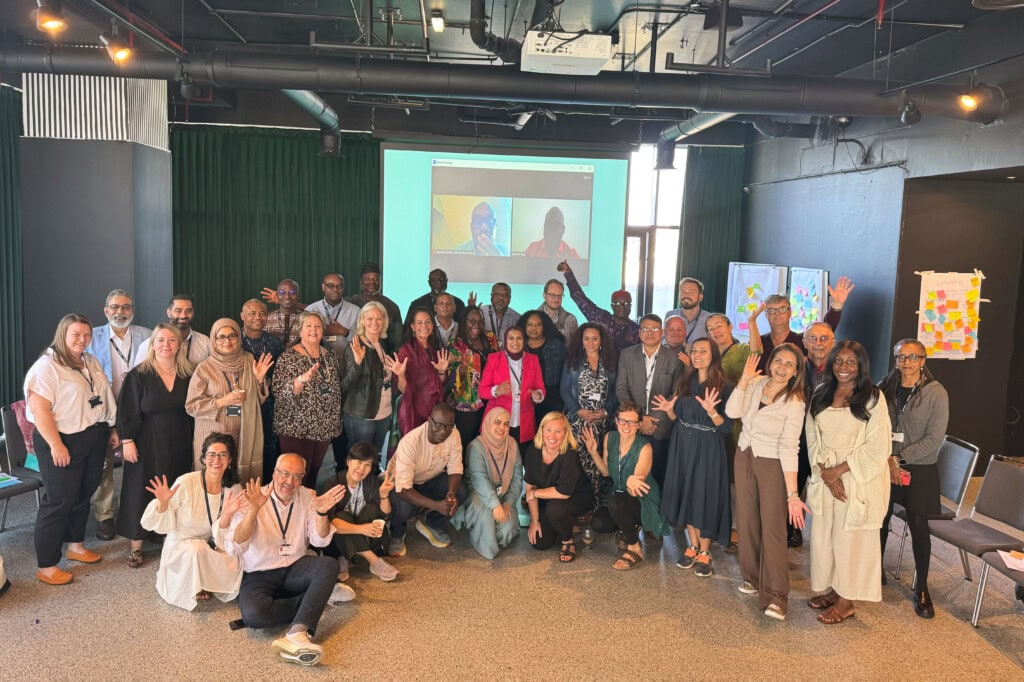Leading together: how we're tackling the isolation of leadership

By Sasha Kapadia (Director of ODI Global Advisory who oversees Tandem)
They say it’s lonely at the top. For those in the humanitarian and development sector, leadership is even more fraught.
Leaders are expected to ably manage often intersecting crises – natural disasters, conflict, forced displacement, environmental degradation and diminished livelihoods – always prioritising the needs of the most vulnerable. Headquarters, host governments, funders and more exert influence that enables and constrains. These stakeholders contribute to a landscape where organisations that should have every reason to collaborate often can’t, so they don’t. Not to mention the fact that the leaders themselves are often swept into leadership. They are in the right place at the wrong time (or the wrong place at the right time, depending on your perspective), prove themselves capable, and off they go to the next, more challenging setting.
For those in the humanitarian and development sector, there is the isolation of leadership, but there is also the very real overwhelm, stress and self-doubt.
Where to turn?
I have the immense privilege of overseeing Tandem, launched in December 2023 by ODI Global. It envisages better leadership for a better world – stronger connections and collaboration underpin that goal.
Having graduated our first cohort in June and welcomed our second in September, I am at liberty to say that many, if not the majority of our leaders, come to the programme tired and…well, a bit demoralised, to be honest. They are devoted to their causes, at the expense of their own well-being; they care deeply about the people they lead and the communities they wish to better serve. Many worry about their leadership style and the difficult decisions to make, agonising over those made in the past. Their friends and families have trouble relating to their predicaments – their lines of work too hard, too heavy to comprehend. The perch of leadership, especially in a competitive, funds-dwindling environment, doesn’t lend itself to new friendships.
Enter Tandem. Tandem understands that these leaders need a support system; it also recognises that they have the solutions to many of their own problems.
The programme begins and closes each cohort with an in-person retreat. (Let the word ‘retreat’ not mislead – these weeks are filled with introspection into one’s own motivations, behaviours, and ambitions, on top of instruction on leadership concepts and practices. Intense!) Leaders travel to the retreats from all over the world, and they may not know a single other person in the room. Most important, they’ve all committed to the growth Tandem seeks to encourage. For this reason, they enter the space – mentally and physically – in a position to share with and learn from others. In between the retreats, in the virtual realm, the feeling carries with two sessions of interactive discussion centered on real challenges they’ve faced each month. Ultimately, the programme creates long-lasting bonds amongst the leaders.
To what end?
Professor Robert J. Waldinger, a psychiatrist and psychoanalyst leading the Harvard Study of Adult Development, states: “If you don’t have people to help you weather the inevitable stresses that come along, the body stays in a low-level fight-or-flight mode, with higher levels of circulating stress hormones and higher levels of inflammation, and we know that those things gradually wear away many different body systems.”
The humanitarian and development sector is rife with inevitable stresses. Leaders need peers with whom to commiserate, gripe, brainstorm and share success. These exchanges are at the core of Tandem’s theory of change – we believe they will translate into better outcomes for populations of concern through more informed decision-making and a greater willingness to collaborate. (Stay tuned for research on this very topic commissioned by Tandem and carried out by ALNAP and the Centre for Humanitarian Leadership.)
Time will certainly tell. For the moment, for our Tandem leaders, it’s a little less lonely at the top.
For more such insights from Team Tandem, subscribe to the Tandem newsletter.
This article was originally published on ODI.org.